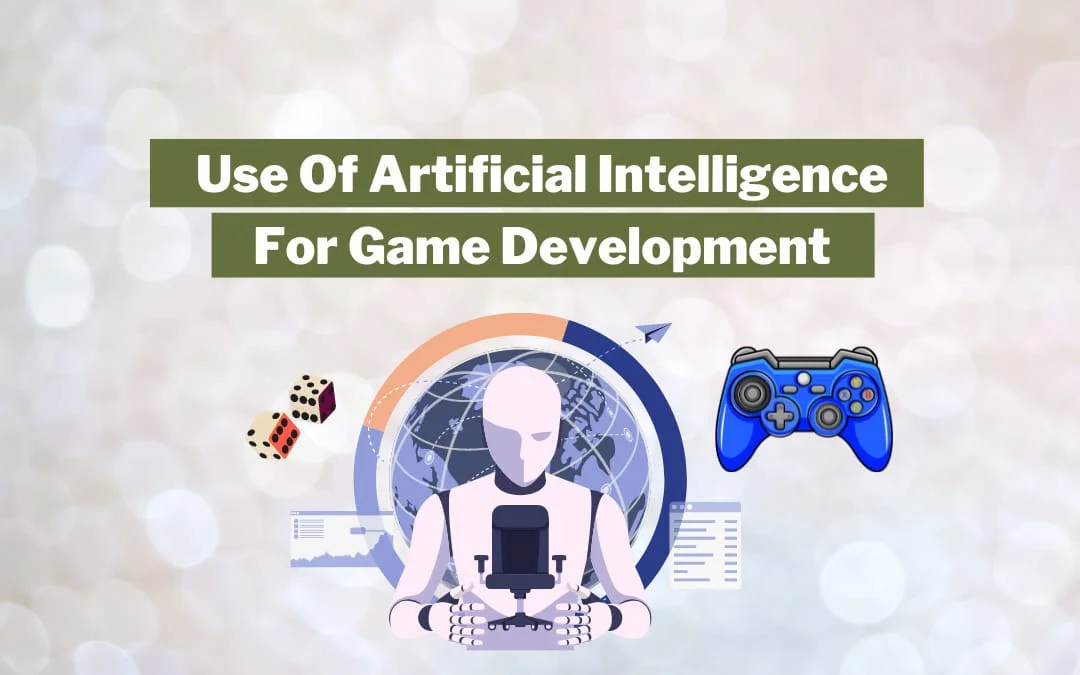The gaming industry has significantly evolved, from being an engaging pastime to a full–fledged and at times mainstream activity. The gaming experience has indeed become more engaging now with the inclusion of Artificial Intelligence in various formats for game development. As a result, Game studios can provide an immersive and interactive experience to their players.
Role of Artificial Intelligence (AI) In Game Development
Artificial Intelligence (AI) plays important role in adding spark to the game development processes and making it more realistic for gaming enthusiasts.
Facilitates Pathfinding
Today games comprise engaging storylines and sophisticated worlds where players expect highly textured environments that both entertain and challenge them. Thus, pathfinding refers to an act of coding and building in–a game character’s navigation which is considered an important task during game development. Thus, AI help to model these complex scenarios and further embed them into a gaming engine. Alongside, it also aligns the game’s logic with the real–time scenarios while accommodating the decision–making.
Detection of Object or Character
While navigating an in-game universe, characters stumble upon game objects. In–game characters are just a piece of code that at times struggle to identify variation an object presents. Such as user or in–game character might need to walk to the destination for finding a damaged vehicle. To execute this AI is being used as it helps to create intelligent in–game characters following the pre-defined pathways.
Supports Character Designing
The characters in the game are almost like a human in the virtual world with some requisite features that add to their uniqueness. At times the characters are designed to react with the right tones and expressions. The inclusion of these tones, expressions, and emotions makes the gaming process a little complex. This is when AI, in the form of Deep Learning algorithms, comes to the rescue and helps to incorporate in-game mechanics while allowing the display of appropriate emotions. As a result, this leads to an immersive experience that keeps gamers engaged.
Allows Engineering Complex Situations
The idea of games is becoming more open–ended in recent times. It includes giving a narrative to characters, adding emotions, movements, intelligence, and a lot more. However, coding these attributes and possibilities beforehand by anticipating them is a complicated task. Many times it would also be possible to accurately predict the scenarios. This is where AI plays a crucial part by creating Finite State Machine (FSM) models for game development. The FSM model supports developers by allowing code multiple scenarios in a single package and letting the game engine compute a chosen ideal path. Thus, the FSM model provides infinite freedom to developers while AI does the heavy lifting while processing in-game logic.
Manages Game Analytics
As the code base grows, the process becomes more complex as it includes reviewing code and fixing errors. Since there are many nooks and crannies in the game applications, it becomes too difficult to locate their source and eliminate errors. Thus, AI is brought to use for conducting code tests and fixing potential breaks in the code. Gaming Analytics which are powered by Artificial Intelligence isolate these incidents and prevent the release of faulty code. As a result, AI–based gaming applications give timely alerts and prevent major flaws in the long run.
development. As a result, Game studios can provide an immersive and interactive experience to their players.
Final Words
It is quite evident game development process is a complex task that requires proficient developers to make the best use of all the available tech stacks. However, finding the right game development partner is the first big challenge. Thus, we make both jobs easier, you may visit us at www.centrelocus.com and have an immersive gaming application for yourself.





